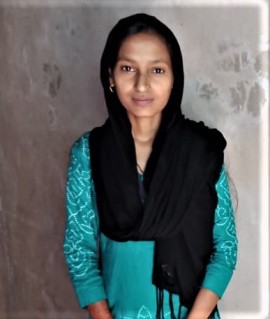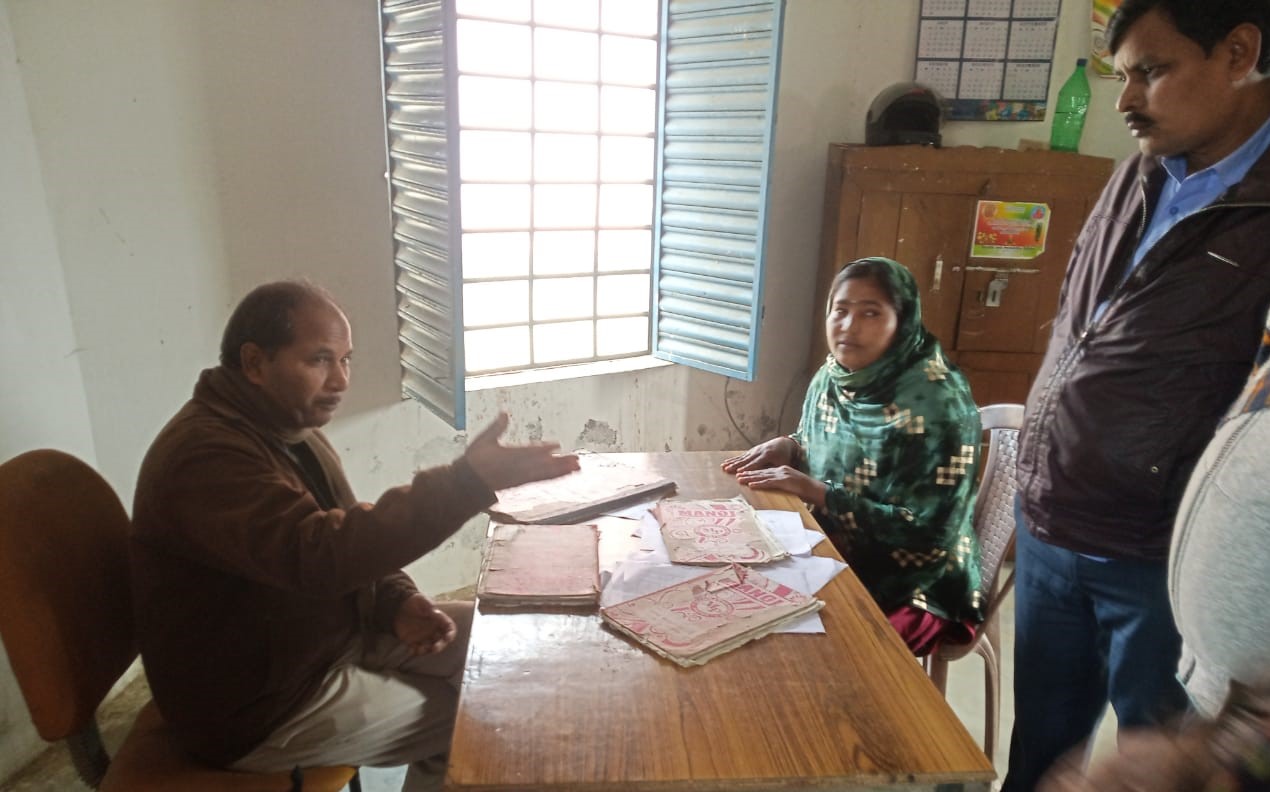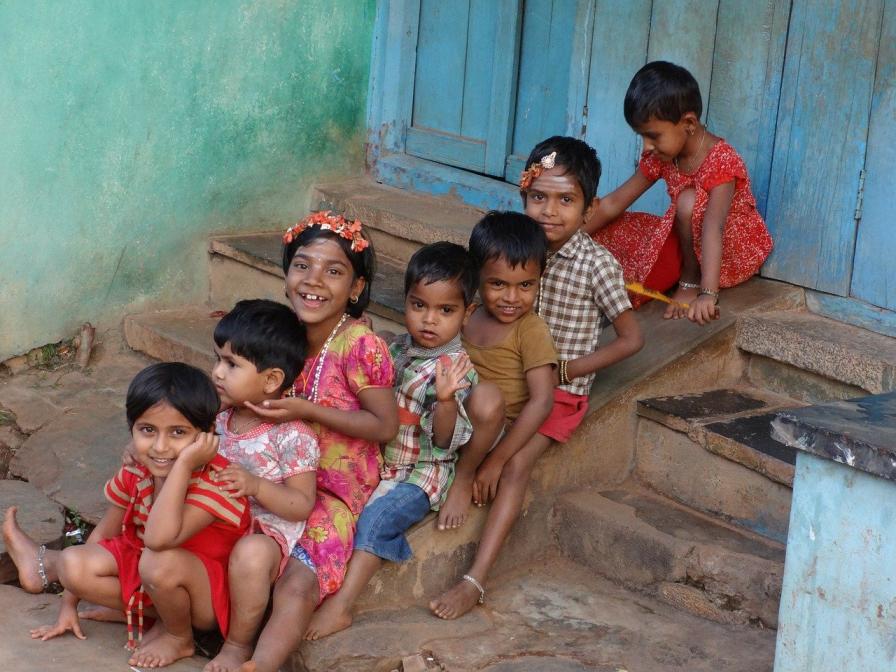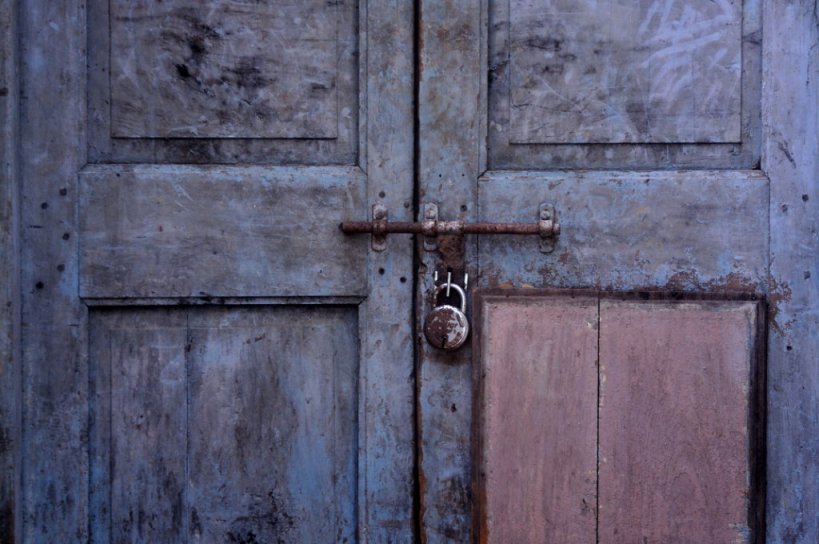I live in Piproli village, Ramgarh block, Alwar district, Rajasthan. I am 20 years old, a first-year BA student, and a Savitri Phule Leadership Fellow with Ibtada. As part of this fellowship, I visit Ibtada’s Girl Resource Centre (GRC), and mentor young girls in matters of education and career, and work with them to build their agency and make them more independent.
It is only after joining the GRC that I got the courage to ask my family to resume my studies, which I had left after class 12th. I said to myself that if I wanted to inspire other girls to continue studying, then I needed to do it myself first.
After frequently going to the GRC and meeting girls and community members, I learned how to talk freely with people outside my village. However, I was still scared of the people in my village. The GRC was in Nikach village, which is 30 km away from Piproli, and whenever I would catch the bus to go there, I would hide my bag and try to not be seen. Still, it bothered my community. “Pure gaon me ghumti rehti hai. Kahan jaati hai? Kya karti hai? Hume to kuch pata hi nahi. Gharwalo ne bhi badi bana rakhi hai. Hum to apne ladkiyon ko bhinahi bhejte, ye to iss gaonki bahu hai.” (She’s always roaming around in the village. Where does she go? What does she do? We know nothing. The family has given her too much freedom. We don’t even let our daughters go out, and she is a daughter-in-law of the village.)
When the lockdown was imposed and I found out that I would have to do relief work in the village itself, I was scared, because the village already thought ill of me.
And so, when the lockdown was imposed and I found out that I would have to do relief work in the village itself, I was scared, because the village already thought ill of me. My family was hesitant too, they said I would not be able to work inside the village. I said,“Let me at least try, maybe people would understand.” Thankfully, I got support from my in-laws.
I started spreading awareness in the village. I put up some charts with precautions written on them. In the markets, I told people about physical distancing. It was also the wheat harvesting season, so I told harvesters to take precautions, carry food and water separately, and to carry soap and wash their hands often. I also made some masks and distributed them. Again, it was difficult to convince people in my village to adhere to these precautions.
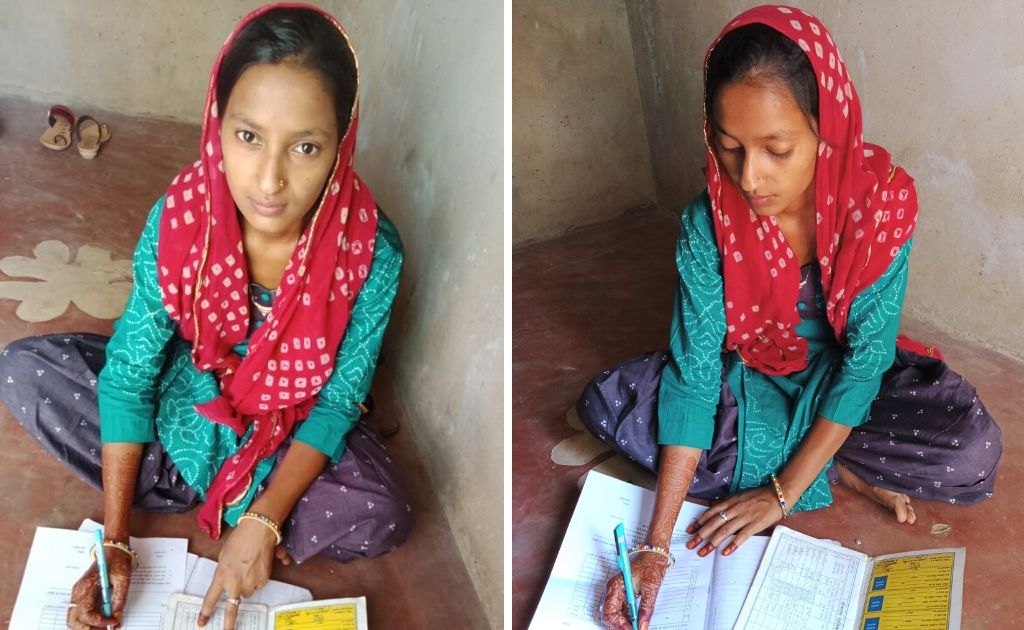
I am trying to get MGNREGA work started in the village for labourers, and get job cards issued for those who don’t have it. | Picture courtesy: Ibtada
The lockdown has resulted in loss of livelihoods of many in my village, because of which the team members of Ibtada are focusing on getting people (especially returning migrants) work through MGNREGA (the Mahatma Gandhi National Rural Employment Guarantee Act). I was able to help labourers in the village get MGNREGA work, which helped in changing people’s perceptions of me.
10.30 AM: I am trying to get MGNREGA work started in the village for labourers, and get job cards issued for those who don’t have them. I fill form no. 6 for 25 workers in the village (form no. 6 needs to be filled to demand work under MGNREGA), and go to the panchayat office to submit the form and get the receipt as proof. This is the first time I am going to the panchayat. Before joining the fellowship, I did not even know what a panchayat is or what happens there.
At the panchayat, the secretary takes the forms but refuses to give me the receipt. I insist, but he does not relent. Seeing no other way out, I come back home and call the Block Development Officer (BDO), telling him that the panchayat secretary is refusing to give me the receipt. He says,“I’ll call the secretary and ask him to give it to you.”
He probably thought that I’m just a harmless girl, what will I do.
When I visit the panchayat office again, the secretary is very angry. He says,“You escalated the matter just to insult me. Usne socha tha ye kuch jaanti to hai nahi. Aese hi mamooli si ladki hai, kya kar legi” (He probably thought I don’t know anything, that I’m just a harmless girl, what will I do). He again refuses to give me the receipt, and asks me to take it from the BDO himself. I say fine, and take back the forms from him and come home. I call the BDO to inform him that the secretary did not give me the receipt, despite his instructions. The BDO reassures me that he’ll look into it.
After a while, I start getting calls from the secretary and the sarpanch. As it turns out, the matter has reached the Sub-Divisional Magistrate (SDM). Worried, the secretary and sarpanch tell me,“We were always planning to provide MGNREGA work in the village. You should not have complained to the SDM.” They ask me not to take the matter further, and collect the receipt the next day. I agree.
2.30 PM: We are also working to provide rations to the needy through the ‘grain bank’ initiative by collecting foodgrains from the village and distributing them to the poor. Some time ago, I had conducted a survey in the village to find out if there were any poor families in need of help. Initially, my family refused to let me do this work, but I explained to them that it was important to provide relief to the poor during this time. They agreed but my mother-in-law accompanied me on the survey.
Some people say they will give foodgrains, but nobody does.
In the survey, I found that families in the village were comfortable and did not face any problem with food availability, except one woman, who did not have any land and was struggling with food. Her husband was a mistri (mason) and had had no work lately.
To help the family, I go door-to-door in my neighbourhood, asking people to spare whatever amount of foodgrains they can, even if it is half a kilo. Some people say they will give, but nobody does. Finally, I take 10 kg of foodgrains from my house and give it to the woman.
5.00 PM: I come across a group of people playing cards in the village, flouting physical distancing rules. Despite several efforts to inform people about the precautions they need to take against COVID-19, many villagers do come out to play cards or cricket. I tell the group to stop and go back to their homes, but they do not listen. I go to the anganwadi workers who are visiting the village, and ask for their help. Together, we explain to the group why it is essential for them to stay in their homes. They finally agree.
6.00 PM: I meet some adolescent girls in the village who tell me that they are having trouble accessing sanitary pads. They usually get it at their schools, which are now closed, and they cannot go to the market either. I make a list of 35 girls who need pads. I contact the school headmaster in Piproli, but sanitary pads are out of stock there too. I then meet an anganwadi worker in the village, but she tells me there are no sanitary pads available. After that, I call two members of the Ibtada team, Preeti and Radha, who I know had received two cartons of pads for distribution from the senior secondary school at Nowgaon, and have some left. I collect the pads from them and distribute two packets each to the 35 girls in my village.
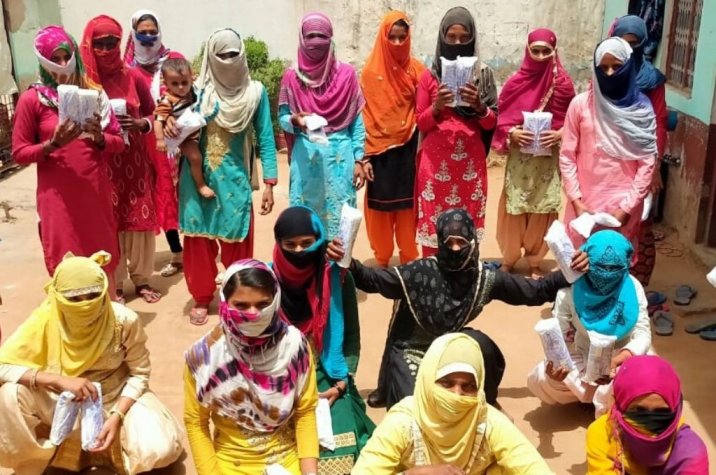
I collect the pads and distribute two packets each to the 35 girls in my village. | Picture courtesy: Ibtada
7.30 PM: I get a call from some of my peers from the GRC. I have not met them since the lockdown, but we have remained in touch via calls and WhatsApp. One of them tells me how she put up charts in her village with precautions against COVID-19, but people tore them down. Now, she has started painting the information directly on the walls. I tell them about my experiences in the village too. We chat a little more and they ask me, “Didi, when will you come to visit us?” But the GRC is far from my village, and it is not possible for me to visit now.
The next day: I go to the secretary again to collect the MGNREGA receipts. He again asks,“Why did you have to complain about me? I would have started work anyway.” I tell him that I did it because he insulted me. He tells me that was not his intention and that my work will be done.
He also tells me that while filling the forms, I had forgotten to add in people’s account numbers. He asks me get it done so he can give me the receipts. I quickly go back and fill in people’s account numbers. By the time I finish, the secretary reaches the block office in Ramgarh. I go there too and finally collect the receipts from him.
After this, people in the village start having faith in me, and realise that I can do something. They also tell my family that I’m doing good work. This reinforces my belief in myself and what I can do for my community.
As told to IDR.
—
Know more
- Watch this webinar on how to pursue gender-forward agendas post the pandemic.
- Read how schoolgirls in India have been facing a shortage of sanitary pads during the nationwide lockdown.
- Learn why it is important to put women and girls at the centre of efforts to recover from COVID-19.

